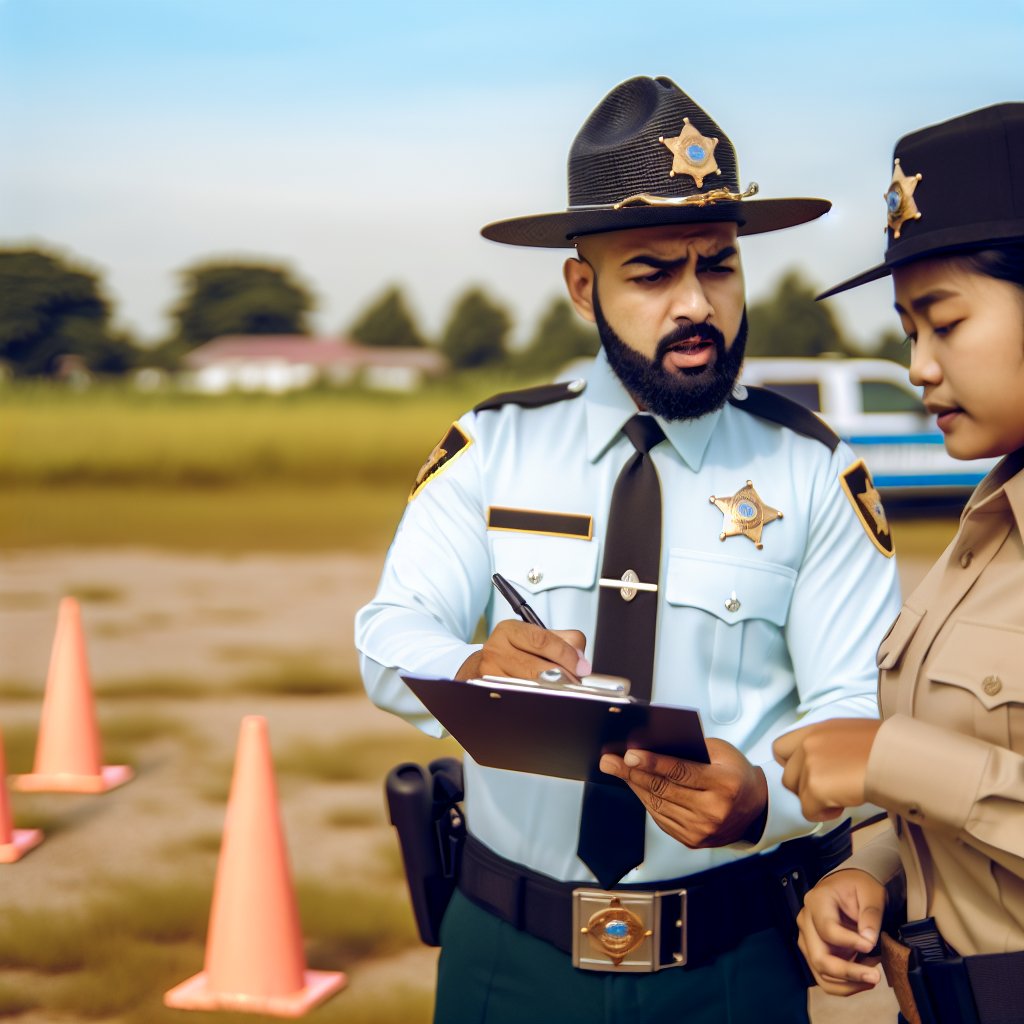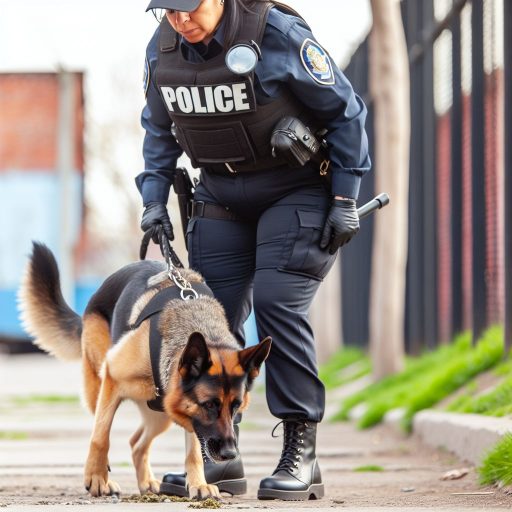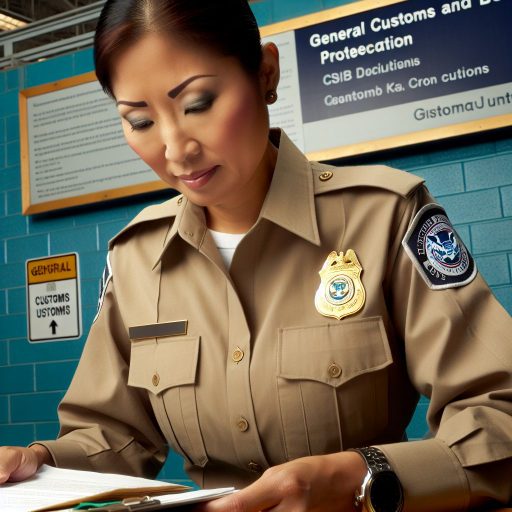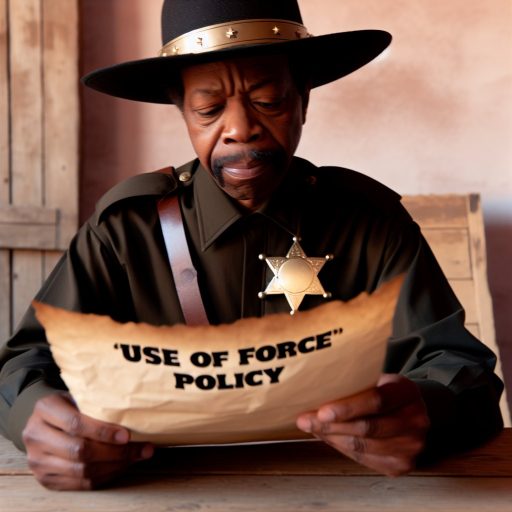Deputy Sheriff Field Training Officer Program
Law enforcement agencies rely heavily on the Deputy Sheriff Field Training Officer Program to prepare new recruits for the realities of the job.
Experiencing real-life situations is essential for officers to become skilled and confident in their roles.
Importance of Field Training Officers
Field training officers play a crucial role in guiding and mentoring new recruits.
They ensure recruits have the necessary knowledge and skills to protect and serve the community effectively.
Field training officers provide practical, hands-on experience that cannot be gained in a classroom setting.
Overview of Blog Post
This blog post will delve into the Deputy Sheriff Field Training Officer Program.
We will explore the key components and responsibilities of field training officers.
Additionally, we will discuss the training methods used, the challenges faced by both trainers and trainees, and the impact of the program on law enforcement agencies.
What is the Deputy Sheriff Field Training Officer Program?
The Deputy Sheriff Field Training Officer Program is a structured training program in law enforcement.
- It is designed to provide new deputies with on-the-job training.
- The program is essential for preparing new deputies for real-life situations.
Explain the purpose of the program
The primary purpose of the Deputy Sheriff Field Training Officer Program is to ensure that new deputies are adequately trained.
- It aims to enhance the skills and knowledge of new deputies.
- The program helps new deputies transition into their roles effectively.
Discuss the role of a field training officer in training new deputies
Field training officers play a crucial role in the development of new deputies.
- They provide guidance, mentorship, and supervision to new deputies.
- Field training officers model professionalism and best practices in law enforcement.
Highlight the goals of the program
The Deputy Sheriff Field Training Officer Program has specific goals that it aims to achieve.
- One of the goals is to ensure that new deputies are proficient in all aspects of law enforcement.
- Another goal is to help new deputies develop critical thinking and decision-making skills.
Qualifications and Requirements to Become a Field Training Officer
Outline the qualifications and experience needed to become a field training officer.
Discuss any additional training or certifications required.
Mention any specific department requirements.
Qualifications and Experience
In order to become a field training officer, you must first be a seasoned deputy sheriff with several years of experience.
Typically, departments require a minimum of five years of active duty as a deputy sheriff before being considered for a field training officer position.
Additionally, candidates must have a clean disciplinary record and demonstrate strong leadership skills.
Field training officers are responsible for guiding and mentoring new recruits, so they must possess excellent communication and interpersonal skills.
Previous experience in training or education is also beneficial.
Transform Your Career Today
Unlock a personalized career strategy that drives real results. Get tailored advice and a roadmap designed just for you.
Start NowAdditional Training and Certifications
In addition to experience, field training officers are often required to complete specialized training programs.
These programs focus on teaching the necessary skills for effectively training and evaluating new deputies.
Some departments may require field training officers to attend specific courses or workshops to ensure they are up to date on the latest training techniques.
Certifications may also be required, such as CPR and first aid certification.
These certifications demonstrate that the field training officer is prepared to handle emergency situations and provide medical assistance if necessary.
Maintaining these certifications may be a requirement to continue serving as a field training officer.
Department Requirements
Each department may have its own specific requirements for field training officers.
Some departments may require field training officers to undergo additional background checks or evaluations.
This ensures that only the most qualified and trustworthy deputies are selected to serve as field training officers.
Furthermore, departments may have specific guidelines or procedures that field training officers must follow when conducting training sessions.
It is important for field training officers to be familiar with these department requirements to ensure they are in compliance at all times.
Discover More: Correctional Officer Career Advancement
Training Process for Field Training Officers
In order to become a Field Training Officer (FTO) within the Deputy Sheriff department, individuals must undergo a rigorous training process that prepares them for the responsibilities and challenges of mentoring new recruits.
This training process is designed to ensure that FTOs have the necessary skills, knowledge, and mindset to effectively guide and evaluate probationary deputies.
Curriculum and Topics Covered During Training
- Communication Skills: FTOs are trained in effective communication techniques to ensure clear and concise instruction to new recruits.
- Leadership Development: FTOs learn how to lead by example, motivate others, and handle challenging situations with professionalism.
- Legal Knowledge: FTOs are educated on the latest laws, policies, and procedures relevant to law enforcement to ensure they are up-to-date.
- Field Training Techniques: FTOs practice scenario-based training exercises to simulate real-life situations and provide practical experience.
- Assessment and Evaluation: FTOs learn how to objectively evaluate and provide feedback to probationary deputies to help them improve.
Evaluations and Assessments
Throughout the training process, potential FTOs are assessed in various ways to ensure they meet the standards required for the role.
- Written Exams: FTO candidates may be required to pass written exams on topics such as policies, procedures, and legal knowledge.
- Scenario-Based Assessments: FTO candidates participate in scenario-based assessments to demonstrate their ability to handle different situations effectively.
- Peer Evaluations: FTO candidates may receive feedback from experienced FTOs and supervisors to identify areas for improvement.
- Role-Playing Exercises: FTO candidates engage in role-playing exercises to practice their mentoring and evaluation skills in a controlled environment.
- Final Evaluation: At the end of the training process, FTO candidates undergo a final evaluation to determine their readiness to take on the role of a Field Training Officer.
By completing the training process and meeting the necessary requirements, individuals can become certified FTOs and play a crucial role in shaping the next generation of law enforcement officers.
Explore Further: Case Studies of Successful Disaster Response Efforts
Responsibilities of a Field Training Officer:
Field Training Officers play a crucial role in the training program.
They provide hands-on training to new deputies in various situations.
FTOs evaluate trainees’ performance and provide constructive feedback.
Transform Your Career Today
Unlock a personalized career strategy that drives real results. Get tailored advice and a roadmap designed just for you.
Start NowThey ensure trainees adhere to departmental policies and procedures.
FTOs instill values of integrity, professionalism, and public service.
They assess trainees’ readiness to work independently in the field.
- Offer guidance on handling critical incidents.
- Share best practices and real-world experiences.
- Provide emotional support during stressful situations.
- Encourage continuous learning and professional development.
- Act as a role model for new deputies to emulate.
Providing feedback and support to trainees is essential.
It helps trainees identify areas for improvement and growth.
Feedback builds trainees’ confidence and self-esteem.
High morale motivates them throughout the training program.
Creating a safe environment allows trainees to learn and make mistakes.
FTOs enhance the overall performance and success of new deputies.
Field Training Officers serve as mentors, educators, evaluators, and motivators.
They hold a significant responsibility in training new deputies.
The impact of FTOs extends beyond the training period.
They contribute to the professional growth and success of each trainee.
Discover More: Cybersecurity Specialist: Key Techniques for Threat Hunting

Challenges faced by field training officers:
Identify common challenges faced by field training officers.
Discuss how to overcome these challenges and be successful in the role.
Provide tips and strategies for handling difficult situations.
Identifying common challenges:
Field training officers (FTOs) face numerous challenges while training new deputies in the Sheriff’s department.
Some of the common challenges include:
- Resistance to change: New recruits may resist feedback and training methods.
- Communication barriers: Misunderstandings due to poor communication skills.
- Time management: Balancing training duties with regular law enforcement responsibilities.
- Managing difficult trainees: Dealing with trainees who have behavioral issues or performance problems.
Overcoming challenges and achieving success:
To overcome these challenges and succeed as an FTO, it is essential to:
Transform Your Career Today
Unlock a personalized career strategy that drives real results. Get tailored advice and a roadmap designed just for you.
Start Now- Build trust and rapport with trainees to foster a positive learning environment.
- Provide constructive feedback and mentorship to help trainees improve.
- Communicate clearly and effectively to avoid misunderstandings.
- Set clear expectations and goals for trainees to follow.
- Be patient and understanding while dealing with difficult trainees.
Tips and strategies for handling difficult situations:
Dealing with difficult situations is a part of being an FTO.
Here are some tips and strategies to navigate through challenging scenarios:
- Stay calm and composed: Maintain professionalism even in stressful situations.
- Listen actively: Hear out trainees’ concerns and address them effectively.
- Provide constructive feedback: Offer specific and actionable feedback for improvement.
- Seek guidance from senior FTOs or supervisors if you encounter challenges beyond your expertise.
- Stay organized and prioritize tasks to manage time effectively.
By implementing these tips and strategies, field training officers can enhance their training effectiveness and ensure the success of their trainees in the Sheriff’s department.
Uncover the Details: Collaborating with Informants: DEA Agent Insights
Benefits of the Deputy Sheriff Field Training Officer Program:
Participating in the program enhances leadership skills.
It provides hands-on training experience for new deputies.
Field training officers develop mentoring abilities through the program.
Highlighting the benefits of participating in the program:
- Improves communication between experienced officers and trainees.
- Strengthens relationships within the department through teamwork.
- Enhances problem-solving skills in real-life law enforcement scenarios.
How the program enhances the skills and knowledge of field training officers:
- Offers specialized training in areas such as tactics and procedures.
- Provides opportunities for continuous learning and professional development.
- Allows officers to stay up-to-date with the latest law enforcement techniques.
Explaining how the program contributes to the overall success of the department:
- Ensures that new deputies are well-prepared to handle duty responsibilities.
- Reduces errors and improves efficiency in law enforcement operations.
- Creates a culture of learning and improvement within the department.
Significance of the Deputy Sheriff Field Training Officer Program
As discussed in this blog post, the Deputy Sheriff Field Training Officer Program is a critical component of law enforcement training.
It ensures that new deputies receive the necessary guidance and mentorship to excel in their roles.
The importance of the program cannot be overstated.
It not only helps in shaping the future of law enforcement but also ensures the safety and well-being of the community.
We encourage readers to consider becoming field training officers or to support those in this role.
By doing so, you are contributing to the development of well-trained and competent law enforcement officers who serve and protect our communities.
Additional Resources
Police and Detectives : Occupational Outlook Handbook: : U.S. …
San Bernardino County Sheriff’s Department – Sheriff’s Department
[E-Books for Sale]
The Big Book of 500 High-Paying Jobs in America: Unlock Your Earning Potential
$19.99 • 500 High-Paying Jobs • 330 pages
Explore 500 high-paying jobs in America and learn how to boost your career, earn more, and achieve success!
See All 500 High-Paying Jobs of this E-Book
1001 Professions Without a Degree: High-Paying American Jobs You Can Start Now
$19.99 • 1001 Professions Without a Degree • 174 pages
Discover 1001 high-paying jobs without a degree! Unlock career tips, skills, and success strategies for just $19.99!




